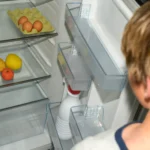
Island Harvest Food Bank and Long Island Cares Respond to Feeding America’s latest Map the Meal Gap Report on Hunger in America
March 23, 2024
Feeding Program to Help Food-Insecure Children When School’s Out for the Summer
June 28, 2024Food Bank showcases crops adapted for LI’s culturally diverse population and previews its regenerative approach to farming. Also, presents newly planted fruit trees/bushes donated by the Sisters of St. Joseph.
BRENTWOOD, NY — June 10, 2024 — Adapting to the nutritional and cultural needs of Long Island’s population shift among people who are food insecure, Island Harvest Food Bank recently previewed a host of new crops of diverse produce it is growing at its 1.8-acre Healthy Harvest Farm in Brentwood, NY, part of a 212-acre parcel owned by the Sisters of St. Joseph, a Catholic religious order. Among the plantings include tomatillo, amaranth, jalapeno, collards, okra, garlic, and mushrooms, in addition to its current crop of items like beans, carrots, corn, cucumbers, eggplants, tomatoes, turnips, watermelon, and zucchini. Tomatillo and jalapeno are familiar to people from Latin American cultures, while amaranth, collards and okra are common among people of Caribbean and African American heritage.
“We wanted to offer culturally diverse produce for Long Islanders who are food-insecure from different backgrounds who may live in food deserts and often don’t have access to products they are used to cooking with,” explains Randi Shubin Dresner, president & CEO of Island Harvest. “As part of our holistic approach to addressing hunger and food insecurity on Long Island, we also teach people how to cultivate and grow their own fruits, herbs and vegetables.” The selection of the culturally diverse produce Island Harvest planted comes from surveys the food bank conducts among its member agencies in Nassau and Suffolk counties and ongoing dialogue with the people it serves.
Island Harvest is at the forefront of changing how hunger is addressed on Long Island and globally by shifting from providing short-term solutions to hunger and utilizing more holistic approaches that include job training, nutrition education, and teaching people in vulnerable communities about growing nutritionally rich, fresh fruits and vegetables and the positive impact it has on diet and overall good health. This concept offers a long-term, sustainable solution to becoming food secure.
At the Healthy Harvest Farm on land provided by the Sisters of St. Joseph, the food bank also presented its regenerative approach to farming, protecting and restoring the health of every part of the farming system — the soil, water, ecosystem, and humans. “Regenerative agriculture techniques include composting, which improves the soil’s health and drainage, and crop rotation, which helps prevent diseases, insects and weeds while building healthy soil,” said Cassidy Kirch, Farm & Gardens Supervisor, Island Harvest. “Other regenerative agriculture practices include reducing soil disturbance by minimizing tilling and covering the soil with vegetation or organic matter.” The food bank also uses a millennia-old Native American growing technique called the Three Sisters method, which uses three seeds — corn, beans, and squash- to help one another thrive.
“The process of regenerative farming also reduces farm labor and material inputs,” added Ms. Shubin Dresner, who noted that Island Harvest’s Healthy Harvest Farm is staffed by one full-time and one part-time organic gardener, supported by volunteer groups from local businesses, schools, and community-based organizations. Volunteers assist with planting and cultivating seedlings and harvesting the crops, among other necessary farm-related tasks.
The Sisters of St. Joseph, which promotes responsibility to the earth through its education, spirituality, and justice ministry, provided 27 new fruit trees and bushes, including Asian pear, nectarine, and blueberry bushes, through a donation it received. “Island Harvest and the people we serve are continually grateful to the Sisters of St. Joseph for their generosity and compassion,” said Ms. Shubin Dresner. “The latest donation is a legacy that will bear fruit and hope for generations.”
Last year, 10,541 pounds of produce was grown at the farm, established in 2018 to address the nutritional needs of food-insecure people who don’t always have access to fresh fruits and vegetables, essential to a nutritionally balanced, healthy diet. The produce is distributed among feeding programs across Nassau and Suffolk counties. “The movement is growing, and Island Harvest now serves 50 Giving Gardens and 16 seed libraries on Long Island that produce food to supply local food pantries, stated Ms. Kirch. Island Harvest offers a monthly live virtual Q&A where people interested in starting their own Giving Garden can get gardening tips and tricks from its on-staff organic farmer. For more information on starting a home or community giving garden, contact Cassidy Kirch, Farm & Gardens, at cassidy@ih.local.
